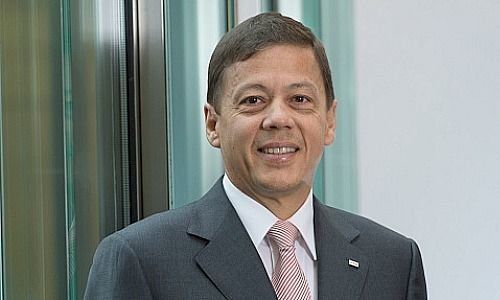Urs Rohner may well be reelected as chairman of Credit Suisse at the bank's shareholder meeting this week. It won't solve his more deeply-rooted problem.
A Credit Suisse shareholder meeting this Friday may well enter the annals of Swiss corporate history as the first time investors shoot down what they view as excessive pay packages in Swiss banking.
Shareholders have had a say on pay since 2014 thanks to Swiss laws governing pay, but they have never nixed individual pay packages. The closest they got was in 2014, when they rejected pay for Julius Baer Chief Executive Boris Collardi, in a consultative vote. Taking the shareholder disproval as a sign, the private bank revised its pay policies the following year.
The situation at Credit Suisse is entirely different: earlier episodes of shareholder activism targeted company-specific aims. In the case of Switzerland's biggest bank, the board and top management epitomize a stance that the overwhelming majority of our society has little to no sympathy for anymore.
Warning Shot From Bern
This weekend, the normally hands-off-business Swiss government even weighed in, with Economics Minister Johann Schneider-Ammann warning the Credit Suisse bosses against taking millions in payouts despite a billion-franc annual loss. In an interview with Swiss weekly«Zentralschweiz am Sonntag» (in German), Schneider-Ammann called the bonuses a «foolishness, that has nothing to do with the markets» as well as «an inconsiderateness which will backfire sooner or later in negotiations with social partners.»
Credit Suisse's top echelon has lost so much credibility that their ouster is a distinct possibility.
Firstly, their argument that Credit Suisse has to rewards its top people with such massive payouts in order to keep them sweet is pure folly: with the exception of league table leaders like Goldman Sachs or J.P. Morgan, which play in a distinctly different league to Credit Suisse, salaries for top bankers globally have fallen considerably.
Rivals Earn Less
It only takes a brief look at pay for European banking leaders that Credit Suisse should be measuring itself with: most institutes are paying less than Credit Suisse is awarding itself. Not to mention Asian banks, the hottest growth market for these firms: pay there is a fraction of what is seen as customary in Europe.
Against this backdrop, the argument that «market conditions» require high pay is a flimsy pretense for executives to pig out at the trough.
Secondly, Credit Suisse under Urs Rohner's leadership has once again proven how far removed from reality it is. The bank initially neglected to lower pay to a level to avert a shareholder rebellion as well as a wider public fury in its home market. From appearances, it was more important to Rohner to garner as large a sum as possible, with little regard for other considerations.
Bonus Climb-Down
This was followed by a humiliating, hurriedly-arranged climbdown from the original bonus plan on Good Friday that translates into making minimal concessions in the hopes of gauging what it would take to get shareholders to swallow the pay plan.
Top management «voluntarily propose a reduction of variable compensation by 40 percent» was the marquee message, as finews.com also reported.
This means that CEO Tidjane Thiam will relinquish one-third of his bonus pay in the loss-making year: instead of an originally awarded 11.9 million Swiss francs, he will take home just 10.24 million francs.
«Fat Cat» Banker Cliche
It isn't hard to spot the vast discrepancy between the 40 percent «headline number» and the more modest amount nobly relinquished by Thiam, and it does little to dispel the «fat cat» cliche which was common among bankers following the financial crisis.
For Credit Suisse to sell the forfeiture as «voluntary,» as Rohner has argued in several newspaper interviews in recent days, borders on burlesque: the bank risked entering Swiss corporate history as the first firm to have its pay knocked down in a binding vote.
Rohner, a slick and fast-talking former securities lawyer and media executive, may well be reelected, but his credibility is shot – he is not the person to lead the chastened Swiss bank out of the brouhaha.

Rohner's leadership has been criticized for years, including by finews.com here and here, but his defenders have argued that if not him, then who? For the first time, a viable option will present itself at the very shareholder meeting in which Rohner will be lambasted by shareholders.
Swiss banker Alexandre Zeller (pictured above), is being proposed to the parent bank's board, and a quick perusal of the former HSBC banker and SIX chairman's CV shows that he fulfils the requirements to chair a Swiss bank.
In fact, Zeller already chairs Credit Suisse's Swiss unit – the business that the bank wanted to list in order to raise the funds desperately needed to replenish its depleted capital.
With these plans now on the back burner as Credit Suisse reportedly mulls raising capital the traditional way – by tapping shareholders – Zeller would appear to be free for another job.



































